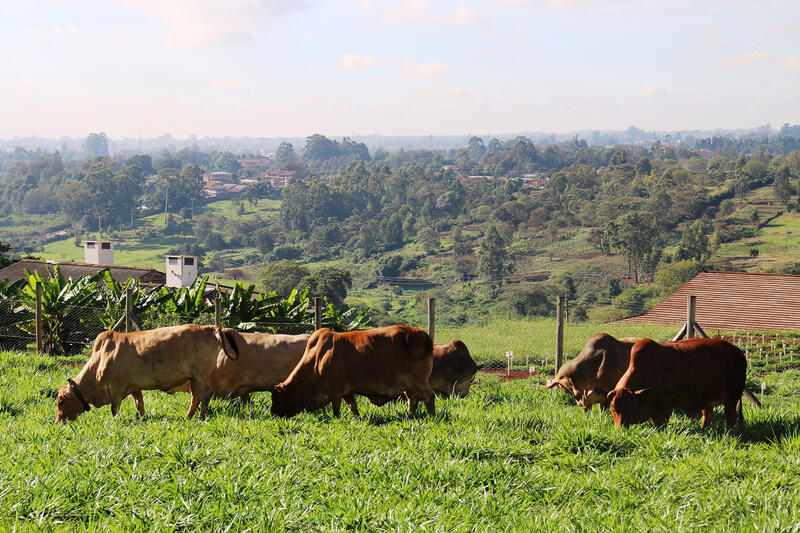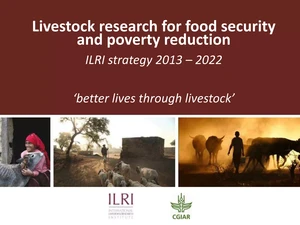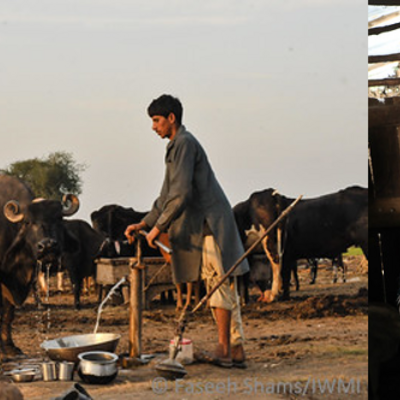In 2012, ILRI developed a new strategy for the period 2013– 2022. Articulated in the tagline better lives through livestock, it incorporated several changes from the previous strategy, moving from a focus on livestock as a pathway out of poverty to a broader agenda that addresses poverty and food security in ways that are environmentally sustainable, good for human health and nutrition, and equitable.
The strategy had three major objectives
- With partners, to develop, test, adapt and promote science-based practices that—being sustainable and scalable—achieve better lives through livestock.
- With partners, to provide compelling scientific evidence in ways that persuade decision makers—from farms to boardrooms and parliaments—that smarter policies and bigger livestock investments can deliver significant socio-economic, health and environmental dividends to both poor nations and households.
- With partners, to increase capacity among ILRI’s key stakeholders to make better use of livestock science and investments for better lives through livestock.
Much has changed (externally and internally) in the last ten years. Externally, new external drivers of change such as the impacts of the COVID pandemic, the conflict in Ukraine and increasing concerns about the climate crisis affect how ILRI and the livestock sector needs to engage and change. Internally, the CGIAR reform process has integrated the research centers and staff across a wider spectrum and ILRI science is now embedded in an integrated network of research focused on transforming food, land and water systems.
Because of this, ILRI is kicking off a process to update and adjust its strategy. This process will happen from July– October 2023. In this process we will listen to, and consult with, a diverse range of stakeholders through face to face and online discussions, surveys, interviews and focus group discussions.
The new strategy will have a number of elements:
- A new corporate strategy to that provides overall vision and mission
- A new science strategy that will respond to current challenges and will also include a strategy for CGIAR livestock based systems and an animal source foods strategy.












